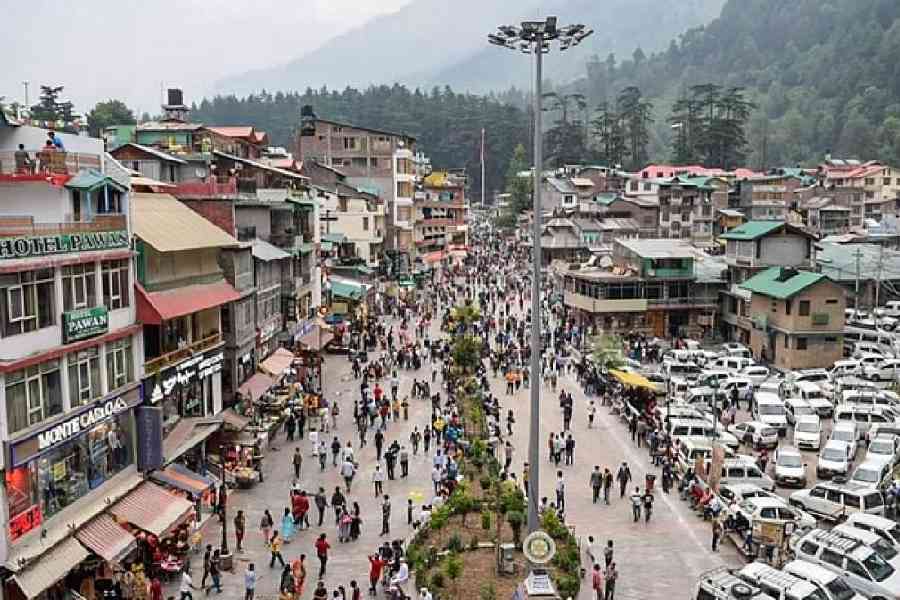During summer, most families plan trips to seek relief from the scorching heat. Shimla, Mussoorie, Manali, Mount Abu, Nainital, Ooty, and Ladakh are some of the popular holiday destinations. However, a large influx of visitors can adversely impact the environment, culture, infrastructure, and lives of local residents.
The upswing in tourism, propelled by the pandemic's fatigue and the easing of Covid-19 restrictions, has created a phenomenon known as 'revenge tourism'. But 'revenge tourism' is not the only cause of overtourism. The growth in the tourism sector can be attributed to factors like affluence, demographic shifts, convenience, and awareness. The economic prosperity of a burgeoning middle class has led to a rise in individuals with disposable income for travel. There has also been a shift in demographics; the 30-50 year age group, comprising the majority of earning individuals, has a discernible preference for travel unlike previous generations. There is also the matter of convenience. The availability of online platforms offering budget-friendly accommodation and heightened connectivity through improved modes of transportation have bolstered the urge for travel. Greater accessibility, in turn, has popularised destinations, leading to a surge in visitors.
But overtourism has its flipsides.
The commercialisation of destinations has led to rising rents, noise pollution, traffic congestion, the displacement of local retail as well as changes in the character of places. Overcrowding and traffic snarls are impacting the tourist experience negatively. In 2021, the Nainital administration had to send tourists back because of the lack of parking facilities. Mussoorie and Shimla face similar challenges. There is a strain on infrastructure. Tourism heightens energy consumption and causes poor waste management. Additionally, tourists contribute to the degradation of a destination's natural environment, exacerbating water and air pollution. For instance, the careless disposal of waste by visitors to Kedarnath has made headlines. Finally, overtourism can also threaten a destination’s spiritual and physical integrity. Tourists disrespecting local values and traditions is not unheard of. The negative effects of excessive tourism are particularly noticeable in locations that have limited resources and suffer from geographic constraints. The areas most susceptible to damage include coastal regions, islands, rural heritage sites, and hill stations.
It is important that states regulate the entry of tourists to these ecologically fragile areas. Determining the number of visitors that can be accommodated requires careful consideration of carrying capacity. Carrying capacity refers to the ability of a place to maintain a balance between the number of visitors and the environment without causing harm or degradation to the latter. This involves managing waste and garbage, controlling air and noise pollution, limiting the number of vehicles entering per day, managing traffic scientifically to prevent congestion, optimising the use of natural resources, and encouraging visitors to contribute to the improvement and conservation of fragile areas. It is extremely important to sensitise visitors to the need of protecting the environment.
The overexploitation of resources does not help either the tourists or the stakeholders in the tourism sector. There is thus an urgent need for the State, tourists and locals to ensure that tourism is promoted and carried out keeping in mind the finite carrying capacities of ecologically fragile places.
Sharad Panwar is a student of National Law University, Jodhpur










